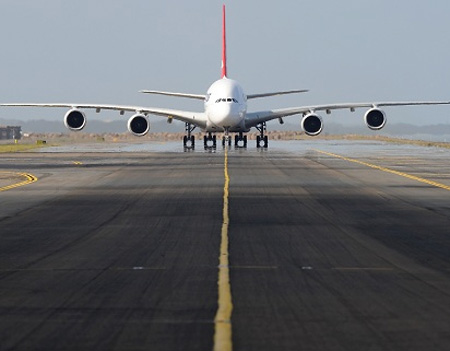In other words, the focus of the team packaging the national project led by the Minister of State for Aviation, Senator HadiSirika, is to ensure no stone is left unturned in achieving this goal for Nigerians 14 years after the former national carrier, Nigeria Airways, was unwisely liquidated.
It is, however, not hidden that even though the government of President Muhammadu Buhari had on assumption of office announced its plan to provide another national carrier for Nigerians, the government through the minister of state for aviation had equally laid down other projects it intended to midwife in the country’s aviation sector.
One of such projects is the controversial plan to concession the most viable four international airports in the country which has been opposed to or embraced by different key players for various reasons.
The rate at which the government led by the minister went about the concession plan then with committees formed to strategise on how to achieve this amidst protests, it was expected that by now the deal would have been signed and sealed.
Obviously, with the ongoing move to float the new airline by December, the concession project may have been kept in the cooler for the time being. But the most important advice here is that government should not put its hand in too many things at a time which may end up furthercomplicatingissues in a sector that is already complicated by previous unpopular government policies.
Now that the priority is towards having a new national carrier, it will be better for government not to rush into concessioning the four international airports for so many reasons that have been raised by many stakeholders.
Absolutely, the idea of airport concession or privatisation would have been the best following the positive experience such ideology has brought to other climes we are copying from.
No doubt, most of the airports in the country today are mere drain pipes as they generate nothing and yet still cost so much to maintain as out of the 22 government airports in the country today, only four or five; Lagos, Abuja, Port Harcourt, Kano and Enugu are viable while others feed fat on the five.
Therefore, as good as the concession plan would have been, the sad story therein is the decision to target the viable ones that are used to fund the unviable ones.
The questions on the lips of many include: why is government not diverting the concession plans towards the unviable ones that need to be made attractive for revenue generation?Does government not realise that the soul for survival of the Federal Airports Authority of Nigeria (FAAN) is rested mostly on these viable airports and therefore, what becomes of the organization and its workers if this main source of money generation is taken away from them and given away to a few people at the expense of Nigerians?
If government wants to help the country’s airports, let it first concession the unviable ones or better still pair two unviable airports with a viable one for the interested concessionaire or whoever for improved management and revenue generation.
The fate of the workers should be given priority if the concession plan is still in the pipeline to avoid any labour dispute.
This brings to the fore the recent position of the Air Transport Services Senior Staff Association of Nigeria (ATSSSAN) at its National Executive Council (NEC) meeting in Abuja where the Union expressed strong reservations about the concession plan.
The four airports according to ATSSSAN are the main sources of FAAN revenue hence, should the government succeed with the concession of the airports, the entire operations of FAAN will collapse since all other airports operated by FAAN are maintained or supplemented with revenue generated from the four referenced airports.
According to the union, FAAN already has huge pension liabilities and will not be able to settle its pension obligations to retirees while salaries of the over 6,900 workers at the 22 airports would be compromised if the four airports are taken away from FAAN.
Aside these, what happens to safety and security at the airports; will these also be transferred to individuals to manage?
While all these questions are calling for answers, it is therefore, very necessary for government to review the concession plans to avoid throwing the baby out with the bath water.







